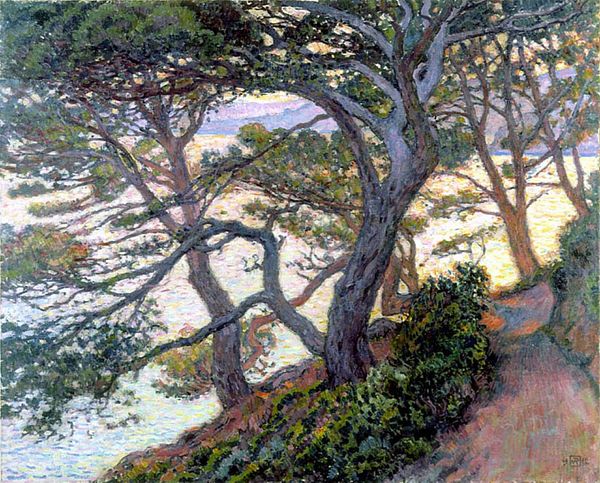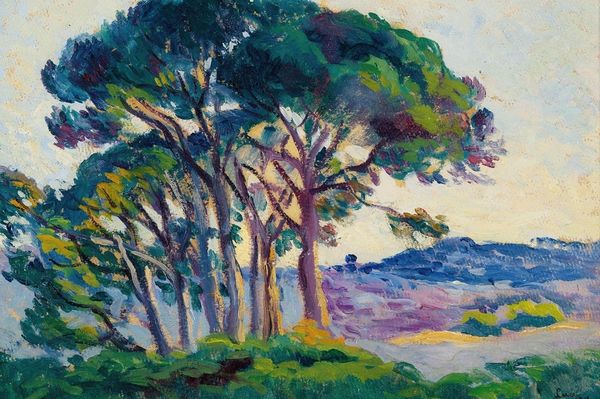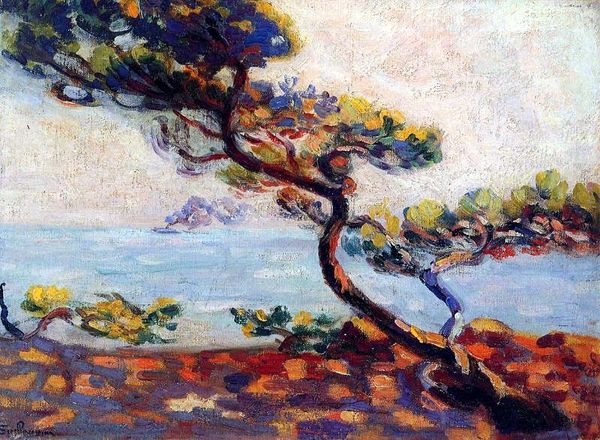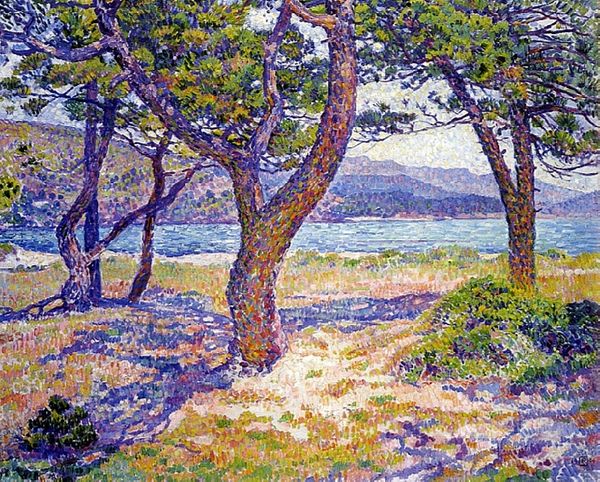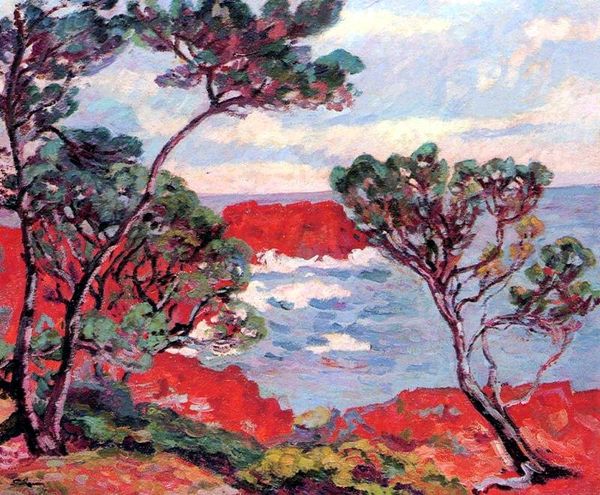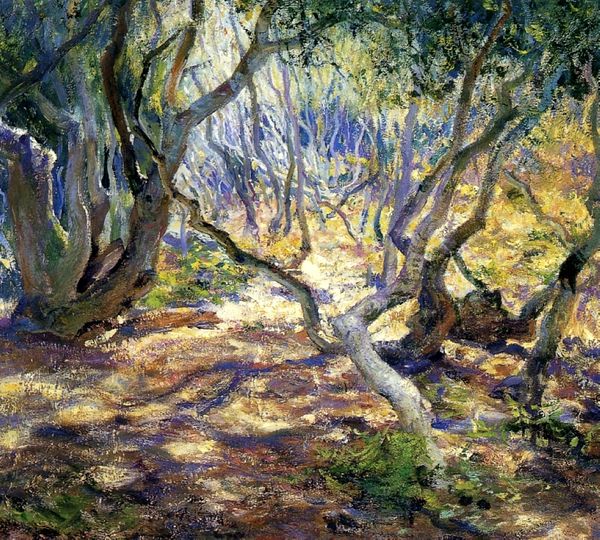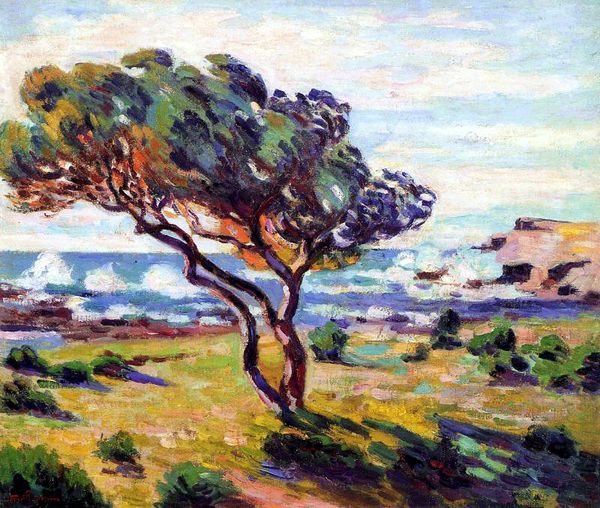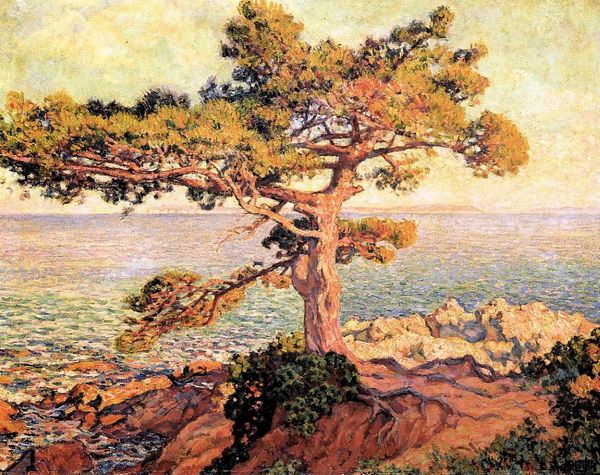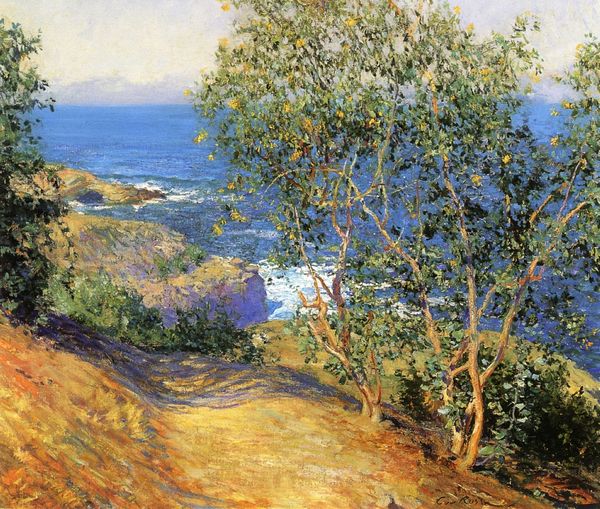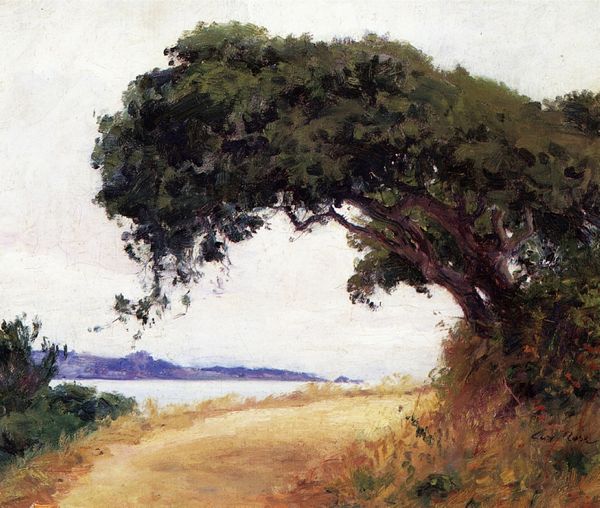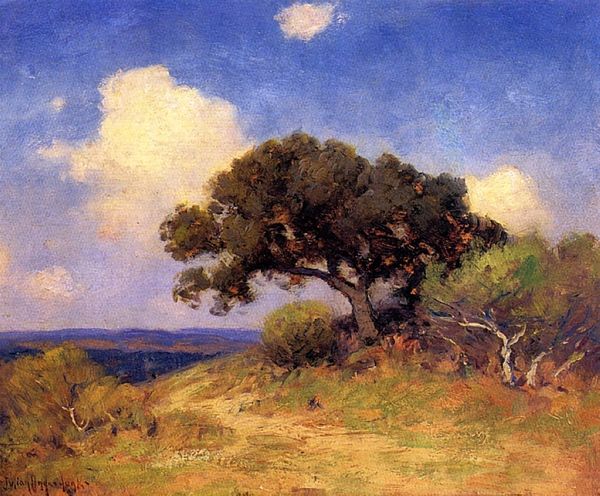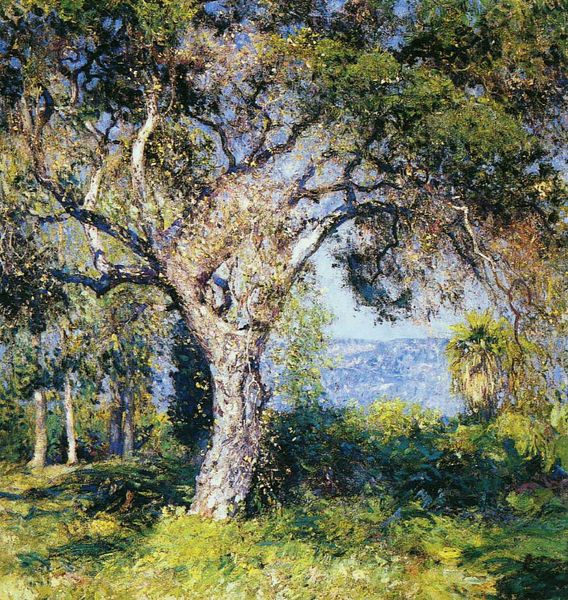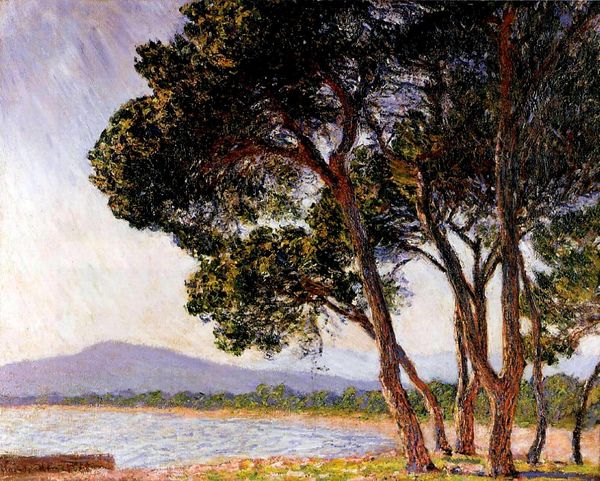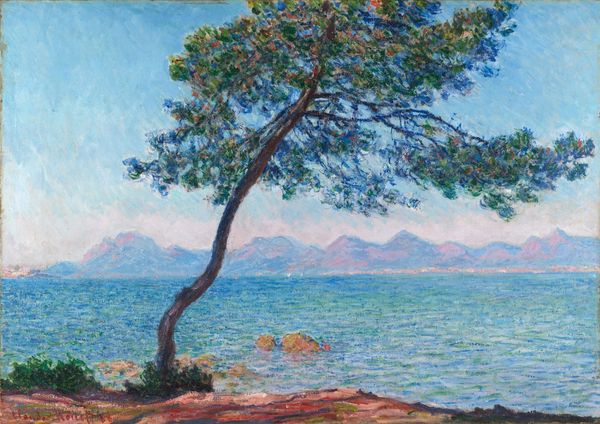
painting, plein-air, oil-paint
#
tree
#
sky
#
cliff
#
abstract painting
#
painting
#
impressionism
#
plein-air
#
oil-paint
#
landscape
#
impressionist landscape
#
nature
#
ocean
#
rock
#
forest
#
plant
#
romanticism
#
naturalistic tone
#
seascape
#
natural-landscape
#
sea
Dimensions: 59.69 x 50.8 cm
Copyright: Public domain
Editor: We’re looking at "Monterey Cypress," an oil-on-canvas painting. Although it's undated, we know it’s by Rose O’Neill, and it depicts a windswept tree against a coastal backdrop. It has a rugged and slightly melancholic feel. What catches your eye when you look at it? Curator: It's intriguing to consider this through a materialist lens. Oil paint, canvas – these are not neutral components. O'Neill's access to these materials, the very act of producing a painting, situates her within a specific economic and social context. This image then isn't simply a pretty landscape but the result of certain industrial and commercial systems at play. Editor: That's a different way to look at it. I hadn't considered the canvas or oil paint themselves having such a presence. Curator: Absolutely! The way the paint is applied – the visible brushstrokes, the impasto – speaks to labor. Impressionism as a style favored *en plein air* painting. Consider the physical labor, transporting supplies, contending with weather, making it. It shows how industrial progress supported the idea of art and its place in society. Editor: I see your point. So, even something that looks like pure nature is tied to human effort, industry, and economy. Would the social status and class of the artist influence how it all played out? Curator: Undoubtedly. O'Neill's access to leisure time and resources to dedicate herself to landscape painting were directly affected by social structures of her time. So it becomes relevant how and for whom the image was intended and produced. And what kind of industry made it available at that time for privileged individuals. Editor: So, we've gone from a landscape to something speaking volumes about production, labor, and access. That's amazing! Curator: Indeed. Seeing art through the lens of material production opens up whole new areas of investigation.
Comments
No comments
Be the first to comment and join the conversation on the ultimate creative platform.
